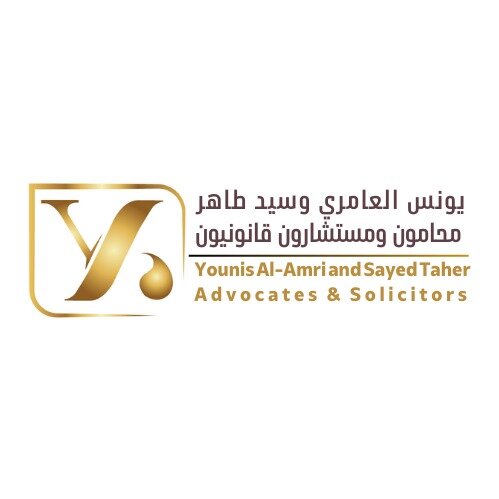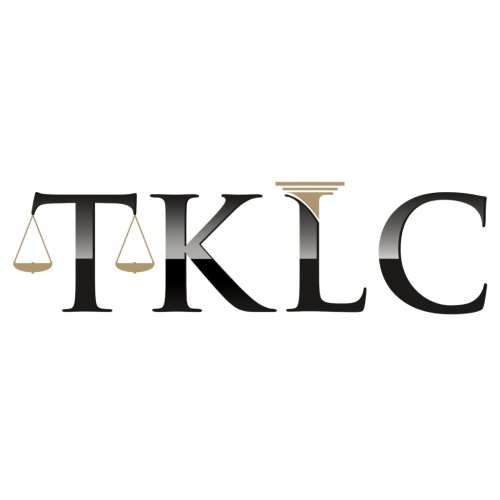Best Aviation Lawyers in Oman
Share your needs with us, get contacted by law firms.
Free. Takes 2 min.
Or refine your search by selecting a city:
List of the best lawyers in Oman
About Aviation Law in Oman
Aviation law in Oman encompasses a variety of regulations and statutes governing the operation and use of aircraft within the country's airspace. This includes both civil and commercial aviation, addressing issues like safety standards, air traffic control, aircraft registration, and environmental impacts. The sector is overseen by the Public Authority for Civil Aviation (PACA), which is responsible for ensuring compliance with international aviation treaties and standards such as those set by the International Civil Aviation Organization (ICAO). The aviation industry plays a crucial role in Oman's economy, facilitating tourism, trade, and international connectivity.
Why You May Need a Lawyer
Individuals and businesses may need legal assistance in aviation for several reasons. Common situations include disputes over aircraft leasing or purchase agreements, compliance with aviation safety regulations, addressing liability issues in the event of accidents, and navigating international aviation laws. Businesses involved in aviation operations, such as airlines, may also need help with labor issues, contract negotiations, and disputes with regulatory bodies. Lawyers specialized in aviation law can offer crucial guidance in understanding and applying complex regulations, thus helping to minimize legal risks and ensure smooth operations.
Local Laws Overview
The key aspects of local laws related to aviation in Oman include regulations on aircraft registration, airworthiness, and licensing, which align with ICAO standards. The handling of aviation-related accidents involves procedures set by the Accident Investigation Authority under PACA. There are also local labor laws that impact aviation industry employees, especially regarding working hours, contracts, and dispute resolution. Environmental regulations specific to aviation focus on noise pollution and emissions. Additionally, Oman complies with international conventions such as the Chicago Convention on International Civil Aviation, which sets principles for air transport operations.
Frequently Asked Questions
What is the role of the Public Authority for Civil Aviation in Oman?
The Public Authority for Civil Aviation (PACA) is the main regulatory body overseeing all aspects of civil aviation in Oman, including safety regulations, air navigation, airport management, and compliance with international standards.
How can I register an aircraft in Oman?
Aircraft registration in Oman is handled by PACA. The process involves submitting an application along with necessary documentation proving ownership and compliance with safety standards before issuance of a Certificate of Registration.
What are the requirements for obtaining a pilot license in Oman?
To obtain a pilot license in Oman, applicants must meet specific medical standards, complete recognized flight training, and pass both theoretical and practical examinations as required by PACA.
Are there specific noise regulations for aircraft in Oman?
Yes, Oman has specific environmental regulations concerning noise pollution from aircraft, aligning with international standards to minimize community impact around airport areas.
How are aviation accidents investigated in Oman?
Aviation accidents in Oman are investigated by the Accident Investigation Authority under PACA, which conducts thorough examinations to determine causes and provide safety recommendations.
What are the customs requirements for importing aircraft parts into Oman?
Importing aircraft parts into Oman requires compliance with customs regulations, which may involve duties and documentation that align with both national and international trade standards.
Is there specific employment legislation for airline staff in Oman?
Oman's labor laws apply to airline staff just like other sectors, but aviation-specific contracts often include additional stipulations related to flight schedules, working hours, and international compliance.
Who oversees air traffic control in Oman?
Air traffic control in Oman is managed by PACA, which ensures that all operations are conducted safely and efficiently within the country's airspace.
How does Oman handle overflight rights for international flights?
Overflight rights for international flights are governed by bilateral and multilateral agreements, adhering to ICAO treaties to ensure mutual respect for airspace sovereignty.
What steps should I take if faced with an aviation legal issue?
If confronted with a legal issue in aviation, it is advisable to consult with a lawyer who specializes in aviation law to better understand your rights, obligations, and the best course of action.
Additional Resources
To gain further insights and assistance regarding aviation law in Oman, you can contact or consult with the following:
- The Public Authority for Civil Aviation (PACA) for regulatory guidance and compliance requirements.
- The Accident Investigation Authority for issues related to aviation incidents.
- Local legal firms with specialized practices in aviation law for expert legal advice and representation.
- The International Civil Aviation Organization (ICAO) for understanding international aviation standards and obligations.
Next Steps
If you need legal assistance in the aviation sector, start by identifying the specific issue or area where you require help. Consider reaching out to a lawyer specializing in aviation law who can provide tailored advice and representation. Gather relevant documentation and information related to your case, and engage openly with legal counsel to discuss your options. Utilizing the resources mentioned previously can be essential in preparing for your consultation and ensuring that you understand both local and international legal frameworks affecting your case.
Lawzana helps you find the best lawyers and law firms in Oman through a curated and pre-screened list of qualified legal professionals. Our platform offers rankings and detailed profiles of attorneys and law firms, allowing you to compare based on practice areas, including Aviation, experience, and client feedback.
Each profile includes a description of the firm's areas of practice, client reviews, team members and partners, year of establishment, spoken languages, office locations, contact information, social media presence, and any published articles or resources. Most firms on our platform speak English and are experienced in both local and international legal matters.
Get a quote from top-rated law firms in Oman — quickly, securely, and without unnecessary hassle.
Disclaimer:
The information provided on this page is for general informational purposes only and does not constitute legal advice. While we strive to ensure the accuracy and relevance of the content, legal information may change over time, and interpretations of the law can vary. You should always consult with a qualified legal professional for advice specific to your situation.
We disclaim all liability for actions taken or not taken based on the content of this page. If you believe any information is incorrect or outdated, please contact us, and we will review and update it where appropriate.
Browse aviation law firms by city in Oman
Refine your search by selecting a city.

















